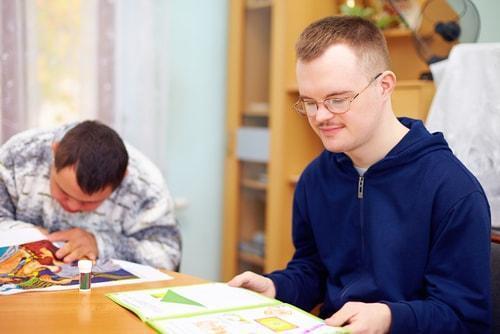Recent Blog Posts
When Does a Living Will Go into Effect?
 It is a fact that many avoid thinking about, but unexpected illnesses and accidents happen to people every day. A living will is a type of advance medical directive that identifies the types of medical care you do and do not want if you cannot speak for yourself due to a major illness or injury. Through a living will, you decide in advance whether you want treatments such as dialysis, artificial ventilation, or a feeding tube to be used if you are incapacitated. Not only does a living will put you in charge of your future medical care, it also saves your loved ones the burdensome task of making important medical decisions on your behalf. If you are considering using a living will to specify your future medical wishes, you may be wondering, “When does a living will take effect?”
It is a fact that many avoid thinking about, but unexpected illnesses and accidents happen to people every day. A living will is a type of advance medical directive that identifies the types of medical care you do and do not want if you cannot speak for yourself due to a major illness or injury. Through a living will, you decide in advance whether you want treatments such as dialysis, artificial ventilation, or a feeding tube to be used if you are incapacitated. Not only does a living will put you in charge of your future medical care, it also saves your loved ones the burdensome task of making important medical decisions on your behalf. If you are considering using a living will to specify your future medical wishes, you may be wondering, “When does a living will take effect?”
Determining When a Person Is Unable to Articulate Medical Wishes
A living will is used when a person has a terminal condition and is unable to express his or her wishes about death-delaying procedures. A terminal condition is typically defined as a medical condition that is incurable and will result in imminent death. The Illinois Living Will Act regulates the rules regarding living wills. In a living will, you will give a declaration explaining directions for medical care should you be unable to express these directions yourself. The declaration reads in part, “In the absence of my ability to give directions...it is my intention that this declaration shall be honored… as the final expression of my legal right to refuse medical treatment.”
How Can Forensic Accounting Help in My Illinois Divorce?

During the divorce process, couples must go through financial documents when determining how to divide assets and property and addressing issues such as spousal maintenance (alimony) and child support. In many marriages, a couple’s finances are straightforward, but that is not always the case. In some situations, forensic accounting may be necessary to analyze financial data more closely. If you are considering a divorce and are not sure how forensic accounting may benefit you, it is essential to speak with an experienced family law attorney who can help you explore your options.
What Is Forensic Accounting?
Forensic accountants utilize accounting and auditing skills as well as investigative skills to perform a thorough examination of individuals’ financial records. Forensic accountants can be useful during a divorce because they are adept at uncovering financial information that a divorcing spouse may have attempted to hide from his or her spouse and the courts. Forensic accountants may review several types of documents, including:
Can I Leave an Inheritance to My In-Home Caregiver?
 Home health aides, private duty nurses, and other paid caregivers can make a tremendous impact on the lives of the elderly or disabled individuals in their care. From helping with medical needs to transporting patients to and from doctors’ appointments to simply providing companionship, these caregivers are a valuable source of support. For many people, these caregivers are more like family members than hired help. If you have a special, non-related caregiver who goes above and beyond to make your life better, you may be considering leaving him or her an inheritance. Special laws dictate rules regarding inheritance to non-related caregivers in Illinois, so it is important to discuss your inheritance plans with an estate planning attorney to make sure your wishes will be followed.
Home health aides, private duty nurses, and other paid caregivers can make a tremendous impact on the lives of the elderly or disabled individuals in their care. From helping with medical needs to transporting patients to and from doctors’ appointments to simply providing companionship, these caregivers are a valuable source of support. For many people, these caregivers are more like family members than hired help. If you have a special, non-related caregiver who goes above and beyond to make your life better, you may be considering leaving him or her an inheritance. Special laws dictate rules regarding inheritance to non-related caregivers in Illinois, so it is important to discuss your inheritance plans with an estate planning attorney to make sure your wishes will be followed.
Illinois Law Regarding Inheritance Left to Non-Related Caregivers
Unfortunately, elder financial abuse is a major problem in Illinois and throughout the United States. Some caregivers will use deceit or psychological manipulation to influence an elderly or disabled person into changing their estate plans so the plans benefit the caregiver. Because of the prevalence of elder financial abuse, Illinois lawmakers recently amended the Illinois Probate Act of 1975 to include special rules regarding inheritances left to non-relative caregivers. According to the law, a property transfer of more than $20,000 is automatically presumed to be fraudulent during any challenges to a will or trust. This means that if you leave your caregiver property valued at more than $20,000 and someone disputes the validity of your will or trust in court, it is possible that your caregiver will not receive this inheritance.
How Can Psychological Experts Affect Illinois Child Custody Cases?

Even when spouses have the best intentions to end their marriage peacefully, divorces have the potential to be filled with contention. Throughout the divorce process, a couple must make many life-altering decisions, including how assets are divided, the details of a parenting plan, and decisions regarding spousal support. In many cases, the decisions regarding children can be the most difficult. When determining the allocation of parenting responsibilities, it may be beneficial to seek the professional opinion of a psychological expert. If you are facing a custody case, your family law attorney can help you explore your options and provide you with advice on when to use a psychological expert. Below are three important factors to consider during your custody case:
Can Psychological Experts Impact the Outcome of a Custody Case?
5 Common Questions About Financial Planning Before an Illinois Divorce

The decision to end a marriage can be emotionally, financially, and even physically devastating. A trusted therapist may help ease emotional stress, but what about the worries regarding finances? Regardless of whether your divorce is amicable or tumultuous, you will need to understand how to protect your rights to the marital estate. If you are facing a divorce and are unsure how to protect your financial interests, you should speak with a knowledgeable family law attorney to explore your potential next steps. In the meantime, here are answers to some of the most frequently asked questions about finances during divorce:
How Much Will a Divorce Cost?
There are many expenses associated with the divorce process. You will be required to pay a variety of court costs and filing fees, and the costs of hiring and working with an attorney throughout the divorce process may add up to several thousand dollars or more. In addition, there are a variety of other ways that legally ending your marriage can impact your finances, including:
DIY Estate Planning Can Lead to Major Mistakes
 If you have started looking into creating an estate plan, you may have come across advertisements for do-it-yourself estate planning or will creation services. At first glance, these services often look very appealing. The advertisement may claim that creating an estate plan through the DIY program will save you time and money. It may even explicitly state that you do not need a lawyer to create an estate plan. Unfortunately, these advertisements lead many people to make estate planning mistakes that end up costing them (or their surviving loved ones) much more time, money, and frustration than they would have spent through traditional estate planning.
If you have started looking into creating an estate plan, you may have come across advertisements for do-it-yourself estate planning or will creation services. At first glance, these services often look very appealing. The advertisement may claim that creating an estate plan through the DIY program will save you time and money. It may even explicitly state that you do not need a lawyer to create an estate plan. Unfortunately, these advertisements lead many people to make estate planning mistakes that end up costing them (or their surviving loved ones) much more time, money, and frustration than they would have spent through traditional estate planning.
Only a Lawyer Can Offer Personalized Estate Planning Legal Guidance
One of the major limitations to online DIY estate planning is that it is a one-size-fits-all approach to drafting an estate plan. There may be several basic documents available such as a will, healthcare power of attorney, and financial power of attorney available through a DIY site, but not lesser-known estate planning instruments. Unlike a website, an estate planning attorney can help you figure out which documents will best fit your needs and which documents you can do without.
How Will Domestic Violence Affect Custody and Parenting Time in Illinois?
 Domestic violence touches the lives of countless families in Illinois and across the United States. The National Coalition Against Domestic Violence estimates that nearly 40 percent of Illinois women and over 25 percent of Illinois men have been the victim of intimate partner physical abuse, sexual abuse, or stalking. On a national scale, one out of every 15 children are exposed to domestic violence every year. Being witness to domestic violence can dramatically impact a child’s wellbeing. Consequently, Illinois courts heavily weigh accusations of domestic violence when making determinations about child custody and parenting time.
Domestic violence touches the lives of countless families in Illinois and across the United States. The National Coalition Against Domestic Violence estimates that nearly 40 percent of Illinois women and over 25 percent of Illinois men have been the victim of intimate partner physical abuse, sexual abuse, or stalking. On a national scale, one out of every 15 children are exposed to domestic violence every year. Being witness to domestic violence can dramatically impact a child’s wellbeing. Consequently, Illinois courts heavily weigh accusations of domestic violence when making determinations about child custody and parenting time.
The Effect of Domestic Violence on Children
The Illinois Domestic Violence Act of 1986 describes domestic violence as abuse as well as “interference with personal liberty or willful deprivation.” Domestic violence can include physical violence, threats, psychological manipulation, intimidation, gaslighting and more. When children witness a parent physically or mentally abusing the other parent, it has a profound effect on them. Children who are witness to domestic violence are much more likely to experience depression, anxiety, verbal, motor, and cognitive issues, aggressive behavior, insomnia, and other problems.
How Can I Collect Past-Due Child Support in Illinois?
Child support payments are typically ordered by the court as part of a divorce decree, but child support payments can also be included in a legal separation agreement. In some cases, both parties may mutually settle upon the payment arrangement. Regardless of the situation (divorce or separation), there are laws in Illinois that ensure that child support orders are enforceable. However, even though child support orders are legally binding, some parents may still struggle to collect payments from a former spouse or partner. Disagreements over late, missing, or inadequate payments can create heated disagreements and high tension in both newly divorced couples and partners who have long been separated. If you are struggling to collect child support payments, a knowledgeable child support attorney can advise you of your legal options.
Tips for Deciding Between a Legal Separation and a Divorce in Illinois

When a married couple is struggling to live in harmony under the same roof, one person usually moves out of the shared residence. The distance and time apart may allow the couple an opportunity to work through relationship problems and determine their next steps. For a couple who can no longer reside together, there are several options available, including divorce and legal separation. If you are struggling in your marriage and would like to discuss your next steps, a family law attorney can explain your rights and your legal options.
What Are the Differences Between Legal Separation and Divorce?
A divorce legally dissolves the marriage between two individuals, while a legal separation acknowledges that the couple is still married but lives apart from each other. Divorce is a permanent decree, but legal separations may be either temporary or permanent. A couple who is legally separated may eventually decide to file for divorce, but they also have the option to end the separation and reunite. It is important to note that during the legal separation, the spouses may not get married to anyone else.
Providing for a Disabled Child Through a Special Needs Trust
 Being the parent of a physically or intellectually disabled child comes with a variety of special challenges. When your child struggles to adequately care for himself or herself due to a disability, you may worry about what will happen when you are not around to help him or her. It can be an uncomfortable reality to consider but making plans for the care of your disabled loved one for after you pass away will give you tremendous peace of mind. One option that many parents of disabled minor or adult children utilize is a special needs trust.
Being the parent of a physically or intellectually disabled child comes with a variety of special challenges. When your child struggles to adequately care for himself or herself due to a disability, you may worry about what will happen when you are not around to help him or her. It can be an uncomfortable reality to consider but making plans for the care of your disabled loved one for after you pass away will give you tremendous peace of mind. One option that many parents of disabled minor or adult children utilize is a special needs trust.
How Does a Special Needs Trust Work?
A trust is a financial instrument often used in estate planning that places assets under the authority of a trustee. In a special needs trust, the trustee is legally obligated to follow the directions contained in the trust and use the funds contained in the trust for the benefit of the disabled individual. The assets held in a special needs trust can be used to pay for your child’s home, living expenses, education, personal care attendant, out-of-pocket medical expenses, recreation, and more. One way to set up a special needs trust is to name yourself as the trustee and name another trusted individual, such as another one of your children, as a successor trustee. When you pass away, the successor trustee becomes responsible for using the assets in the trust for the benefit of your disabled child.













